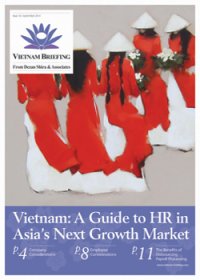Hong Kong-ASEAN FTA Could be Implemented by 2016
HONG KONG – According to Hong Kong government officials, a free trade agreement with the Association of Southeast Asian Nations (ASEAN) should be ready for implementation in 2016. The first round of the trade talks were completed in July of this year.
Hong Kong is eager to deepen its relationship with ASEAN. In recent years, the city has seen trade start to move away from the island as a result of exports from China now being able to move directly to ASEAN nations with reduced or zero tariffs. Previously, many of these products were exported through Hong Kong. As a result, manufacturers in Hong Kong have urged the city to become part of the ASEAN-China free trade network in order to hold onto its position as a key transit hub for trade from the mainland.
Currently, the tariff rates for ASEAN member states range from zero to 10.3 percent.
RELATED: Outlook on ASEAN Investment 2015
The chairman of the Federation of Hong Kong Industries, Stanley Lau, was quoted as saying that “China exports can go directly to the ASEAN countries with tariffs reduced or eliminated, without going through Hong Kong. Hong Kong’s position is being weakened. We need the ’10 plus two’.” Lau was referring to the “10 plus one” agreement which comprises the 10 ASEAN nations and China.
However, trade negotiations have been slow going so far due to the fact that Hong Kong is already a free port that does not impose tariffs on imports; therefore, the city has little in the way of bargaining power because it does not have much else it can offer to the ASEAN nations.
However, with or without the success of the current FTA negotiations, most analysts believe that Hong Kong should still be able to benefit from growing trade in the region with China. Chief economist at DBS, David Carbon, states that “Everybody wants to get rid of barriers, get rid of distortions, and so on. But minor changes on tariffs really don’t impact trade nearly as much as year-to-year growth [in China’s GDP].”
The FTA talks have also focused on the areas of:
- Liberalization
- Promotion and protection of investment
- Intellectual property cooperation
The importance of ASEAN continues to grow, with 2015 set to see the implementation of the ASEAN Economic Community (AEC). The AEC seeks to “transform ASEAN into a single market and production base, a highly competitive economic region, a region of equitable economic development, and a region fully integrated into the global economy.” Collectively, ASEAN represents a market of some 600 million people, with a combined GDP of about US$2.5 trillion and upwards of US$1.5 trillion in trade flowing throughout the region.
Asia Briefing Ltd. is a subsidiary of Dezan Shira & Associates. Dezan Shira is a specialist foreign direct investment practice, providing corporate establishment, business advisory, tax advisory and compliance, accounting, payroll, due diligence and financial review services to multinationals investing in China, Hong Kong, India, Vietnam, Singapore and the rest of ASEAN. For further information, please email asean@dezshira.com or visit www.dezshira.com.
Stay up to date with the latest business and investment trends in Asia by subscribing to our complimentary update service featuring news, commentary and regulatory insight.
Related Reading
Asia Briefing Ltd. is a subsidiary of Dezan Shira & Associates. Dezan Shira is a specialist foreign direct investment practice, providing corporate establishment, business advisory, tax advisory and compliance, accounting, payroll, due diligence and financial review services to multinationals investing in China, Hong Kong, India, Vietnam, Singapore and the rest of ASEAN. For further information, please email asean@dezshira.com or visit www.dezshira.com.
Stay up to date with the latest business and investment trends in Asia by subscribing to our complimentary update service featuring news, commentary and regulatory insight.
Related Reading
 Tax, Accounting, and Audit in Vietnam 2014-2015
Tax, Accounting, and Audit in Vietnam 2014-2015
The first edition of Tax, Accounting, and Audit in Vietnam, published in 2014, offers a comprehensive overview of the major taxes foreign investors are likely to encounter when establishing or operating a business in Vietnam, as well as other tax-relevant obligations. This concise, detailed, yet pragmatic guide is ideal for CFOs, compliance officers and heads of accounting who need to be able to navigate the complex tax and accounting landscape in Vietnam in order to effectively manage and strategically plan their Vietnam operations.
 An Introduction to Tax Treaties Throughout Asia
An Introduction to Tax Treaties Throughout Asia
In this issue of Asia Briefing Magazine, we take a look at the various types of trade and tax treaties that exist between Asian nations. These include bilateral investment treaties, double tax treaties and free trade agreements – all of which directly affect businesses operating in Asia.
 Vietnam: A Guide to HR in Asia’s Next Growth Market
Vietnam: A Guide to HR in Asia’s Next Growth Market
In this issue of Vietnam Briefing, we attempt to clarify human resources (HR) and payroll processes in Vietnam. We first take you through the current trends affecting the HR landscape and then we delve into the process of hiring and paying your employees. We next look at what specific obligations an employer has to their employees. Additionally, we guide you through the often complex system of visas, work permits, and temporary residence cards. Finally, we highlight the benefits of outsourcing your payroll to a “pan-Asia” vendor.









